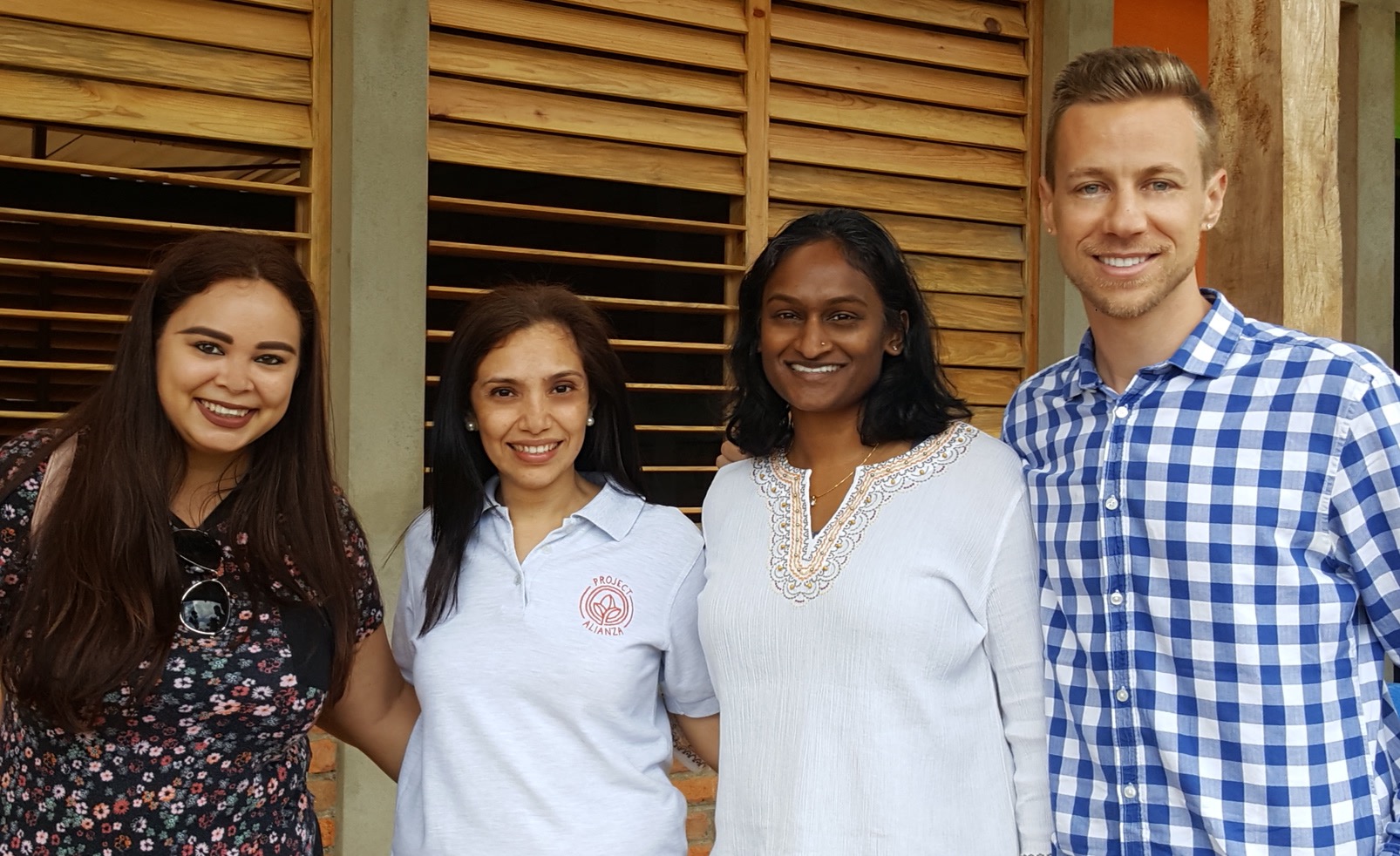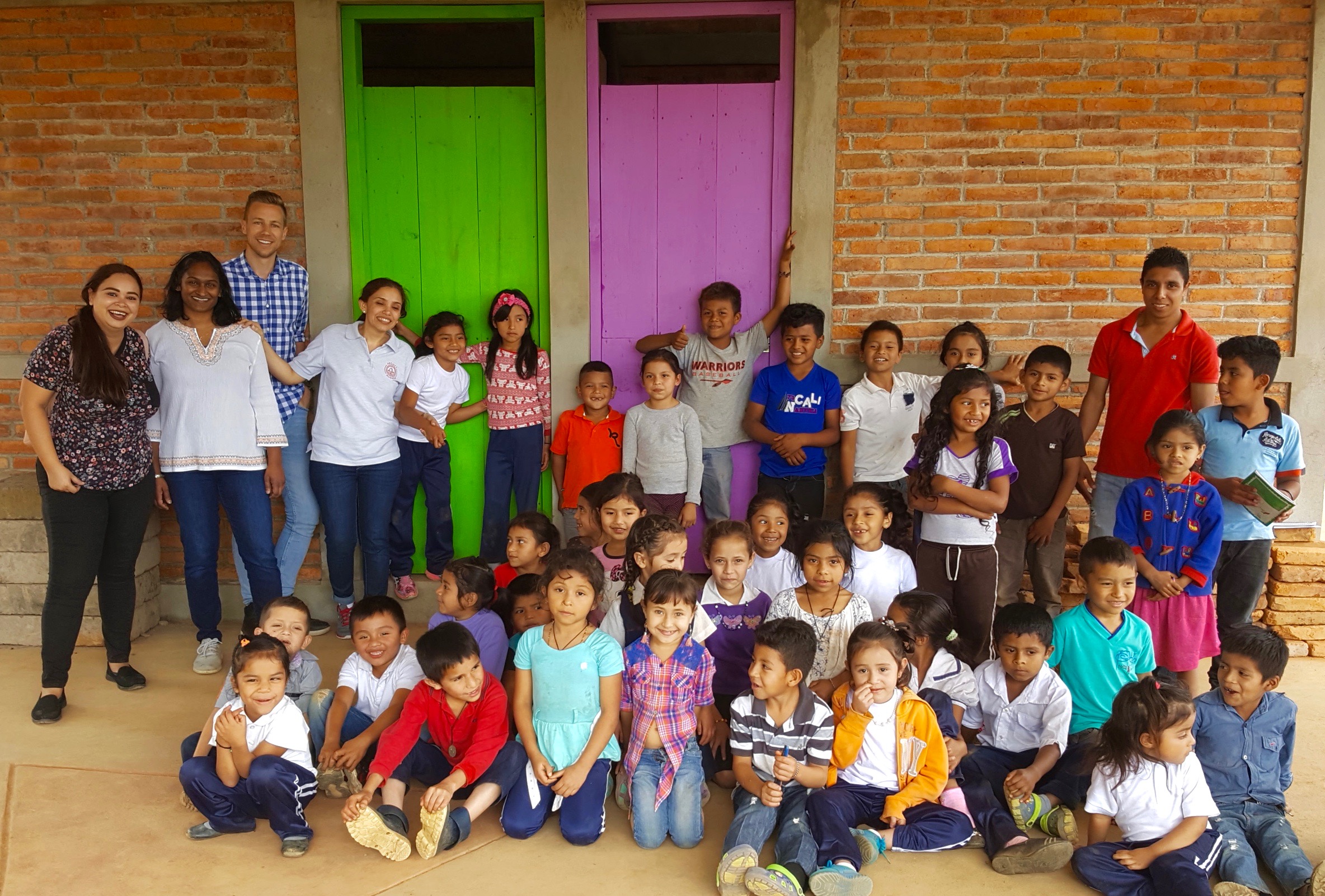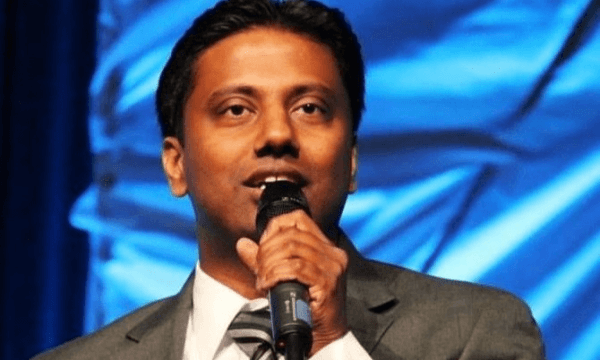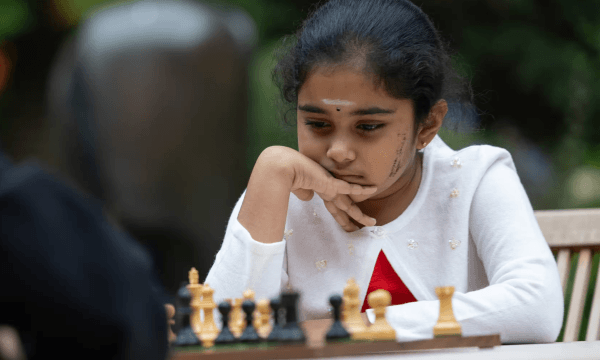
Meera Pathmarajah was a young California teen when an opportunity to travel to Sri Lanka came in the early 2000s. Travelling with a group of fellow Tamil youth interested in visiting their parent’s homeland, Pathmarajah toured areas ravaged by the Sri Lankan civil war. Touched by the countless children on her journey who would ask -- “Akka, eppa thirumbi varuvingal?” (Sister, when will you come back?) Pathmarajah returned to the States knowing her life would never be the same.
With the encouragement of her family, she started a youth leadership training program that would eventually grow to become Visions Global Empowerment.
Thanks to a partnership with former Visions volunteer Greg Buie, Visions has become an officially recognized not-for-profit organization that has deployed over 250 volunteers in service-learning trips spanning Sri Lanka, India, Ethiopia and Nicaragua.
Pathmarajah recently spoke with TC to discuss the inspiration and work of Visions, and how interested readers can get involved.
1. What was the motivation behind starting Visions Global Empowerment?
In the mid-1970s, my father, accompanied by my mother, was one of dozens of young Tamil doctors from Sri Lanka who moved to Lancaster, California, to practice medicine and raise a family. Lancaster, or “Sri Lancaster,” as some of us say, is a small desert city about an hour north of Los Angeles. There was not much to do in Lancaster when I was growing up in the 1980s. Fortunately, the Southern California Tamils formed a close-knit community and it was in the homes of other Tamils, where we joked around, played and ate rice and curry together, that I navigated being Tamil in America.
Once in a while, a handful of uncles briefed us on Sri Lanka’s civil war. They spoke about the outrageous suffering of kith and kin back home. In 1996, I learned about the rape and murder of Krishanthi Kumaraswamy, a 17-year-old Chundikuli Girls’ College student in Jaffna. Her atrocious story inspired some of us youth to form a group called Tamil Youth for Human Rights (TYHR). Our purpose was to raise awareness, first among ourselves, and then others.
In 2002, during the ceasefire, a group of us TYHR members went to Sri Lanka to see the homeland of our parents for the first time. The children’s homes we visited in Kilinochchi, Jaffna, Trincomalee and Batticaloa were my inspiration for starting the first Visions program. At each place we visited, children ran to hug us, hungry for social interaction and affection. They were malnourished, both physically and emotionally. But they also laughed heartily and chatted with astounding charisma, as if we were long lost relatives. At every visit, when we said goodbye, there was always one question I was repeatedly asked. It was the same question every single time. “Akka, eppa thirumbi varuvingal?” Sister, when will you come back?
When I returned from that trip, I felt lost. I had witnessed so much need. Images of bullet-ridden schools and tired mothers in refugee camps weighed on my mind. How does one encounter suffering and then go on with life as usual?
As always, time is the ultimate healer. Weeks later, I was getting ready to start a temporary job as an office assistant when my uncle Harichandran asked me about my trip. “Why not think of a project that could help the children you met?” he suggested. “Don’t take a job just for the sake of it. Do something meaningful on your own and your career will work itself out”, he said. That gave me pause.
A few days later I declined the assistant job. With mentorship from my uncle, and funds raised from Tamils in Southern California, I began planning the first Visions youth leadership training program. It was originally modeled off of a Bharata Natyam dance camp I attended many times as a teenager in Yogaville, Virginia. From that experience, I knew the power of intensive instruction. Our first curriculum incorporated dance and yoga, alongside leadership, life-skills, art and sports. We proved that bringing people together on the basis of mutual respect, learning and healing, could be transformative. Since then, we have replicated and enhanced the trainings over 170 times for over 4,100 youth and teachers across Sri Lanka, India and Ethiopia.
Thanks to my Visions co-founder, Greg Buie, our leadership curriculum has evolved, and more than 250 international volunteers have participated in service-learning trips to help conduct leadership trainings. Greg’s involvement with Visions, from the time he started as a volunteer in 2004, changed Visions forever. His skills, diligence and drive helped take Visions from a small project to a non-profit organization incorporated in the U.S. When violence in Sri Lanka peaked in 2008, we expanded our programs into India. Subsequently, Greg led our expansion into Ethiopia in 2012 and more recently, into Nicaragua in 2016. Meanwhile, I gained experience working for four years in Asia with the global non-profit, Room to Read, and earned my Masters and Doctorate degrees in International Education Policy. Together, as Visions co-founders, Greg and I have come to complement each other well. We share a deep appreciation for one another, and I attribute much of Visions’ growth to Greg’s humility and persistence.

2. What objectives does Visions have? What programs do you have on offer?
Worldwide, millions of children face immense daily hardships that prevent them from accessing a quality education. As an organization, we are committed to changing this reality through a focus on youth leadership, inclusive education and technology.
Our current programs in Sri Lanka include college scholarships, school development projects, support for English teacher trainings and an internship program called Bloom. Bloom is a sponsorship program that aims to increase skills and employment opportunities for Jaffna youth. In partnership with Vettri Holdings Inc. and Yarl IT Hub, we sponsor youth to attend six-month software coding camps and then support them to gain work experience through internships with companies such as Noolaham and Arima. We also have a long history of youth leadership programming in Sri Lanka. Unfortunately, in 2016, these programs came to a halt due to a lack of funding.
Aside from our efforts in Sri Lanka, we also run educational programs for children and youth in India, Ethiopia and Nicaragua. In India, we have a network of 14 village-based Youth Learning & Empowerment Centers that conduct after-school programs for hundreds of youth. We also run an ongoing e-learning program at six schools across Tamil Nadu and self-publish our own Tamil-language Kanavu magazine, which is focused on promoting youth leadership development. With our scholarship program, we mentor, train and financially sponsor youth attending university. We currently support 22 youth in this scholarship program, and we are also facilitating scholarships for six Sri Lankan Tamil students currently studying in India.
In Ethiopia, Visions is the largest provider of support and services for deaf youth and adults in the country. Our efforts since 2012 have helped counter the widespread stigma attached to deafness in several communities and we have even influenced the Ethiopian government to hire interpreters and deaf teachers in some primary schools. We achieved this through ongoing classes in Ethiopian Sign Language for hearing and deaf persons, academic support during and after school, early childhood education, interpreting services, hearing testing and counseling, introductory speech and cued speech support, livelihood support, mentorship, community advocacy and outreach. Our work has been centered in Bahir Dar, the capital of the Amhara Region, but we plan to begin initiatives in Awassa (the capital of the Southern Nations Region) and the national capital of Addis Ababa in the coming months. Educational programs to benefit students who are blind or visually impaired are on the horizon as well.
Finally, in Nicaragua, we are working on our most ambitious endeavor to-date – establishing the Escuela Vera Angelita boarding school for girls and young women in Matagalpa. This school is currently under construction on a beautiful 140-acre coffee farm in the middle of a cloud forest that will eventually span grades one to 12 and will cater to children of local coffee pickers, agricultural workers and migrant laborers. In addition to the school, we are invigorating the land with a large-scale farm, botanical gardens, teacher village, volunteer accommodation, and an eco-resort. The school will be self-sustaining and is tentatively set to open its doors in early 2021.
3. Is there a particular memory from a trip overseas that stands out to you in terms of reinforcing your commitment to tackling global inequality?
Sivatharshini Ravindran, who we have worked with and known for over 15 years, is an example of an incredible success story born out our work. After losing her father to war, Sivatharshini’s widowed mother was left with three young children in Mutur, Sri Lanka. Her mother later remarried and Sivatharshini gained a younger-step brother. But when the 2004 tsunami struck, Sivatharshini suffered the devastating loss of her only sister. Her family lost everything and was displaced to a refugee camp. At that point, like thousands of other parents, Sivatharshini’s mother struggled to make ends meet and admitted her children to St. John’s Girls Home, hoping to provide them with a better education and upbringing.
Sivatharshini was just 13 years old when we met her at a 2004 Visions youth leadership training. Initially shy and reserved, Sivatharshini grew in confidence year after year. She attended our leadership training three times and clearly stood out as an exemplary student. When the violence resurged in Sri Lanka a few years later, we lost touch with Sivatharshini, but reconnected through social media in 2012.
By then she had finished high school and dreamed of becoming a scientist. Through Dr. Darshan Ambalavanar at the Church of American Ceylon Mission (CACM), who began mentoring Sivatharshini, Visions supported her with a scholarship to study English. In 2013, we funded her education to earn a Bachelor of Science degree in Zoology at Madras Christian College in Chennai, India. After graduating, we hired her as a social worker with CACM for Visions-funded youth programs. Today she is completing a Masters degree in Medical Microbiology at Peradeniya University thanks to a Visions donor who was moved by her story.
Like Sivatharshini, there are countless other youth who have persisted in the face of daily difficulties. We are proud to have supported over 200 of them with trainings and college scholarships, but we feel a sense of urgency to increase such opportunities for many more youth.
4. How can interested readers donate and get involved?
We invite everyone to consider joining Visions on a service-learning trip to help conduct youth leadership trainings and experience a visit to our program sites. We run our annual service trips every summer and periodically during other times of the year too. We are always open and eager to connect with those who have a particular passion for education, creating curriculum, designing educational or training programs, or otherwise volunteering their professional skills, connections and resources to further our ongoing work. Lastly, we have always dreamed of opening Visions Chapters in Toronto, London, Sydney, or any other Tamil diaspora hub throughout the world. Please get in touch with us if you are interested in getting involved!
Donations and volunteer support are critical to our work as a non-profit.

























